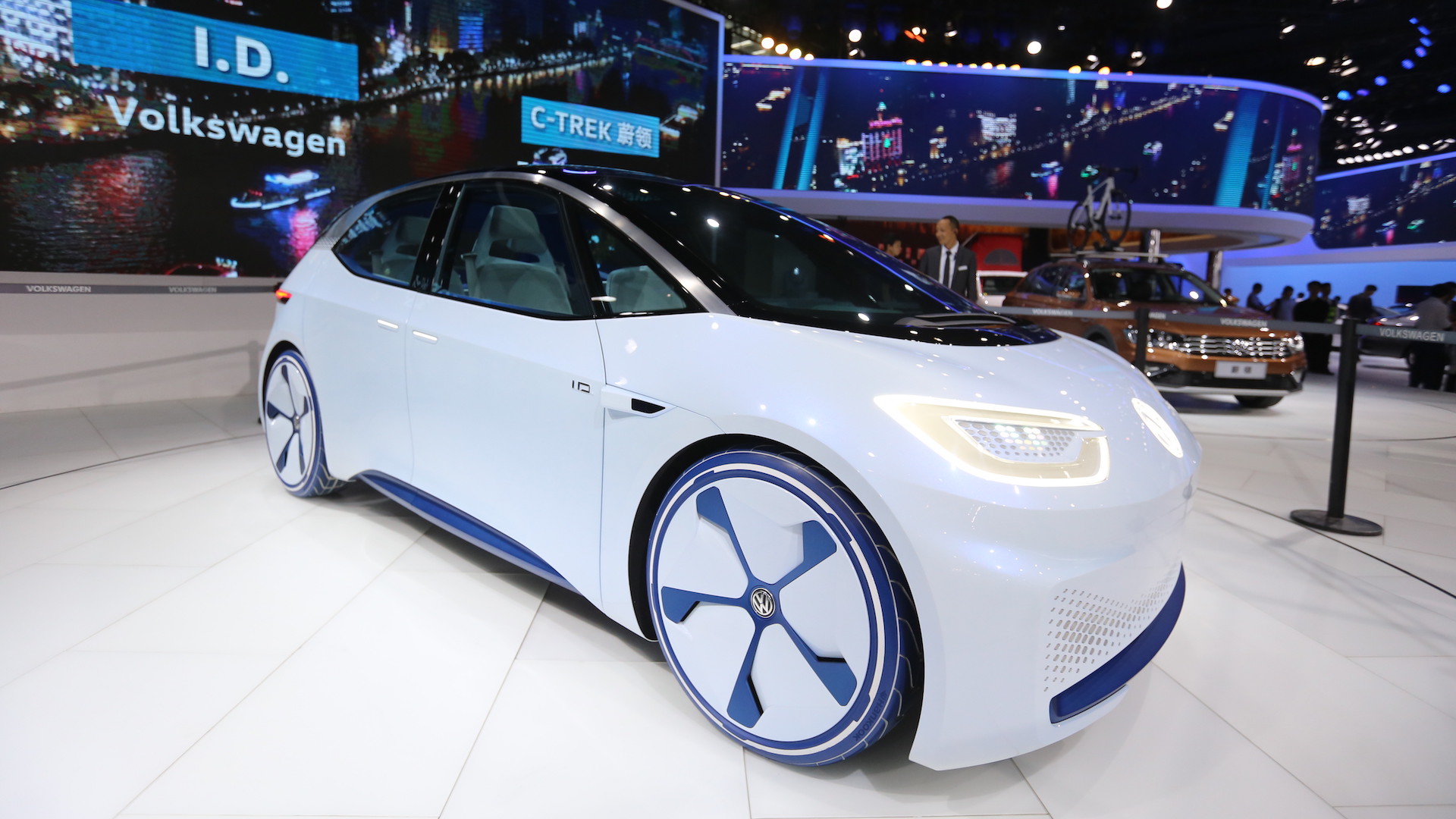

We may earn revenue from the products available on this page and participate in affiliate programs. Learn more ›
Five years after the first Model S sedans were delivered, established automakers are finally readying responses to Tesla. Luxury brands like Audi, Jaguar, Mercedes-Benz and Porsche are preparing electric cars to compete with the Model S and Model X. But Volkswagen plans to do more than just compete. VW wants to “leapfrog” Tesla and become the leader in electric cars, reports the Financial Times.
Such a move would help erase the PR stigma of Volkswagen’s diesel-emissions scandal, and give the company and advantage in an anticipated future of tighter emissions regulations. But can VW really stop the Tesla juggernaut?
Despite delivering less than 100,000 cars last year, Tesla’s image and dedication to electric cars have made the Silicon Valley automaker VW’s main target. The Volkswagen brand is targeting annual sales of 1 million electric cars by 2025. Tesla hopes to hit that by 2020, and expects to reach 500,000 cars per year by next year.
“Anything Tesla can do, we can surpass,” VW brand boss Herbert Diess said during a press conference at Volkswagen’s Wolfsburg, Germany, headquarters. Diess said VW will achieve the same success in the volume market as Tesla has in the premium market. The high cost of the Model S and Model X is one of the factors that has kept Tesla sales relatively low, but the company hopes to address that with its $35,000 Model 3, which is expected to start production later this year.
Diess also said Volkswagen will have “leapfrogging cost advantages” thanks to economies of scale offered by shared platforms. The German automaker is planning a family of models around an electric-car-specific platform called MEB, and has shown four concepts based on the platform. It may be attempting to repeat the success of its MQB platform, which underpins a variety of models across multiple brands, encompassing everything from the Golf hatchback to the Atlas three-row crossover.
The Volkswagen brand currently sells just two electric cars: the e-Golf and e-Up!, the latter limited to the European market. In addition to the main VW brand’s push for 1 million electric cars by 2025, some of the automaker’s other divisions are planning cars with plugs. Audi will launch an electric SUV next year, and another a year after that. Porsche is planning an electric sedan based on the Mission E concept from the 2015 Frankfurt Motor Show.
If it really is serious about electric cars, Volkswagen definitely has the resources to overwhelm Tesla. But the German giant has only recently shown significant interest in electric cars, so it does have some catching up to do. In particular, Volkswagen will have to decide how it plans to secure a suitable quantity of batteries, something Tesla addressed by building its own massive “Gigafactory.”
There’s also the matter of the cars themselves. If Volkswagen can build them, will the customers come? Will VW’s first mass-market electric car be able to match the Model 3 in performance, price, or just plain old desirability? Right now, it’s hard to overestimate Tesla’s cachet, as evidenced by the hundreds of thousands of Model 3 reservations the company has accumulated.
